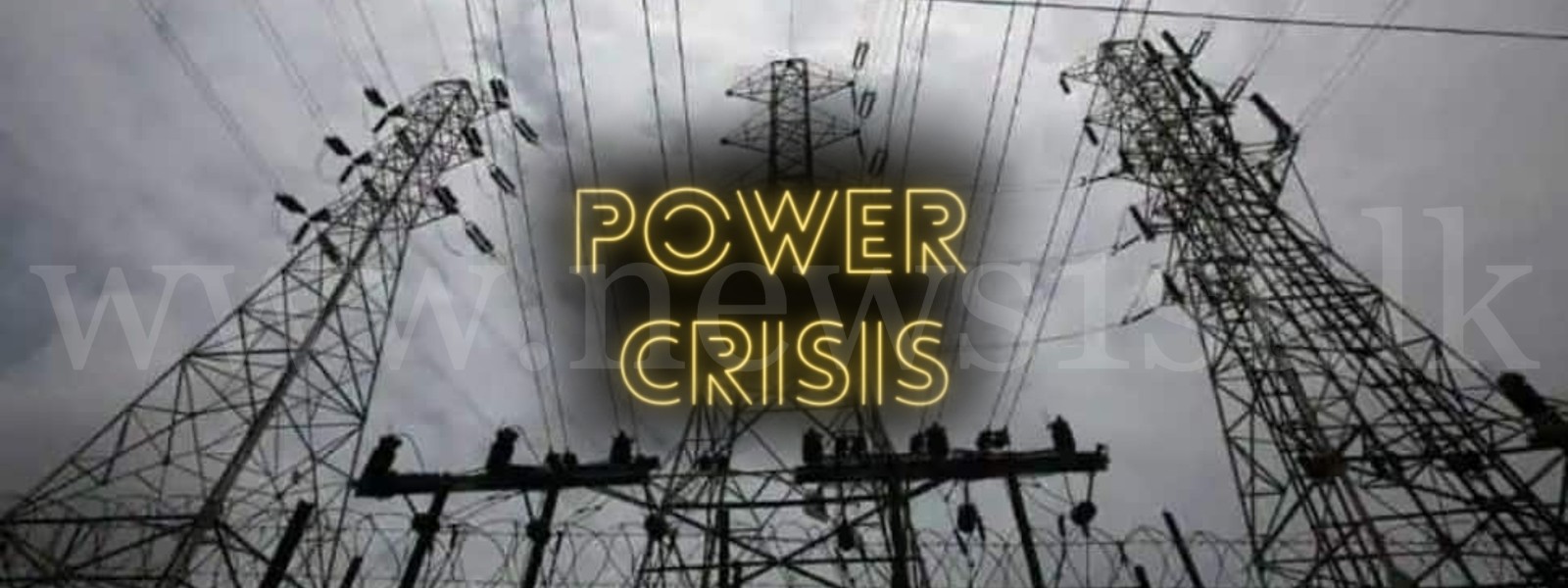.webp)

Sri Lanka's power crisis
COLOMBO (News 1st); The Ceylon Electricity Board Engineers Association on Sunday (23) warned that there will be four-phase power cuts with effect from Monday (24).
However, it is due time to examine the different views of parties involved in the power crisis.
What is the current fuel status of power plants?
Sapugaskanda has come to a standstill due to lack of oil, and according to the trade unions, the power plant has less than 24 hours to run on fuel.
Meanwhile, the Yugadanavi power plant has fuel for only 10 days.
What does the Minister of Energy say about this?
The Energy Minister, Udaya Gammanpila stated on Sunday (23) that the stocks of fuel have been depleted due to a weakness in the CEB's calculations.
The Minister said that the CEB had requested the Ceylon Petroleum Corporation to supply only enough fuel for 10 days.
Minister Gammanpila also stated that the stock of fuel was handed over to the CEB last week as agreed during the discussion held with the President's participation.
Moreover, Minister Udaya Gammanpila added that a ship carrying 37,500 metric tons of diesel has arrived near the Sri Lankan sea border.
He also said that fuel could be supplied to the CEB if the relevant stock of diesel is released after obtaining dollars.
What does the Minister of Power say?
Power Minister Gamini Lokuge said that the CEB is currently managing the fuel stocks it has received so far.
The Minister of Power and Energy also stated that due to this, there will be no need for a power cut from next Tuesday (25) onwards.
However, the Unions state something completely different.
Ananda Palitha, the Media Spokesperson of the United Trade Union Force revealed that the Petroleum Corporation is the sole supplier to supply on demand. And the CPC has been equipped with tanks to supply according to the necessary demand, however all those tanks have been drained of the fuel they are supposed to hold.
Speaking further, the TU member stated that a commission should be appointed to probe this very deal, and added that in addition, fuel imports, refinery shutdown, fuel storage and the fuel distribution in the country should be investigated as well.
He also stated that by the second week of February, Sri Lanka will have to go through several severe power cuts.
Meanwhile, Minister Gamini Lokuge stated that discussions will be held in the Cabinet on Monday (24) regarding plans for switching off street lights and plans underlined for the prudent use of electricity by state institutions as a solution to the current power crisis.
The power crisis has intensified against the backdrop of declining hydropower generation as well.
Currently, the water level in several reservoirs has dropped sharply, as in November and December, the spill gates of these reservoirs were opened.
The Victoria Reservoir is in a state of disrepair, with cracked earth and drained water being a common sight.
Environmentalist Senaka Amiyangoda stated that the water level drops like such during the months of March, April and May of the year are normal, however, due to the continuous rains in the past few months, the Victoria Reservoir should have a good water level by now.
The Acting Engineer at Victoria Reservoir, Wasantha Ehelapitiya also stated that especially with the commencement of organic farming this year, more water has been released while the amount of water has decreased due to the release of water for hydropower generation too.
Will the low water level in the reservoirs aggravate the power crisis?
The Chairman of the CEB Engineers Association, Saumya Kumarawadu pointed out that in another two or three months, the water level in the reservoirs will drop drastically.
He also said that reservoirs now fulfill about 25% of our hydropower. However, about three or four days ago the reservoirs have fulfilled about 37%, which will be reduced to 25%, that will result in about five or six hours of a power cut.
"Managing the water level is very important now," he added.
What will the overuse of reservoir water result in?
With the water level in reservoirs being used to the maximum for power generation, there is a risk of a drinking water crisis in the future due to the dry weather as well.
Ekanayake Weerasinghe, the Assistant General Manager of the National Water Supply and Drainage Board said that water should be used sparingly to minimize this situation.
He further urged the people to consume drinking water giving priority to essential activities.
Other Articles
Featured News





.png )




-822030_550x300.jpg)
-822023_550x300.jpg)




-819380_550x300.jpg)


-812087_550x300.jpg)
-810262_550x300.jpg)
















.gif)